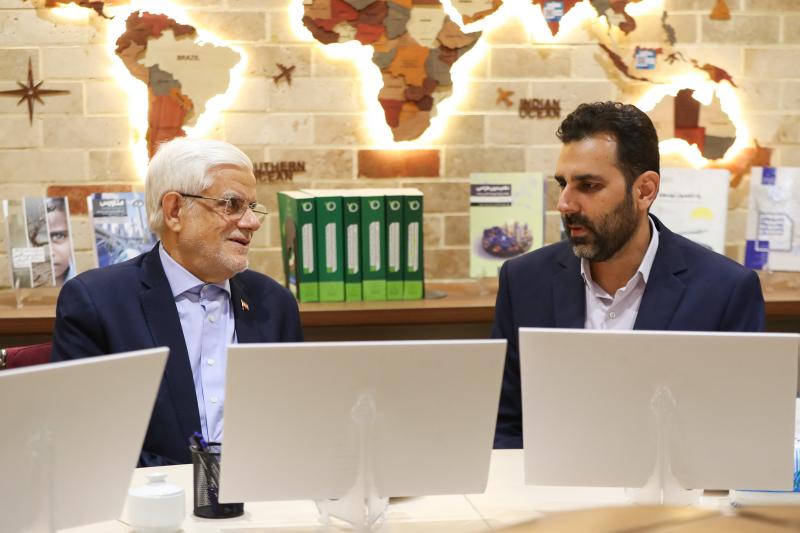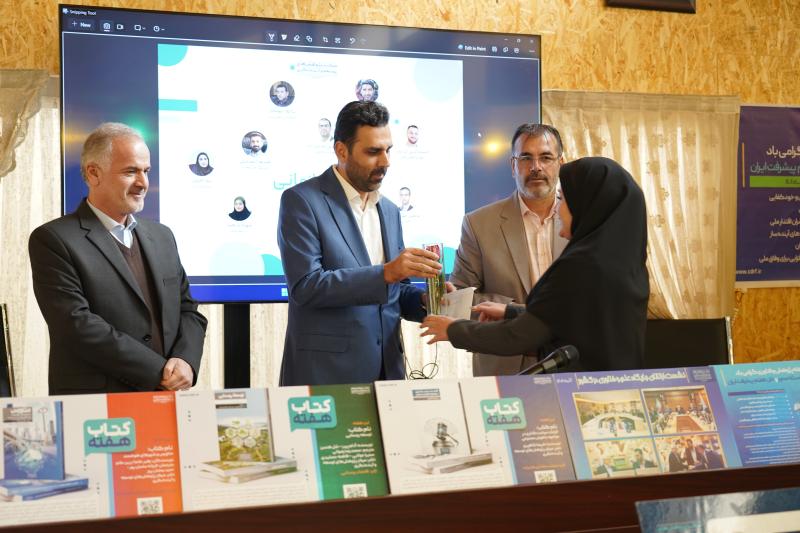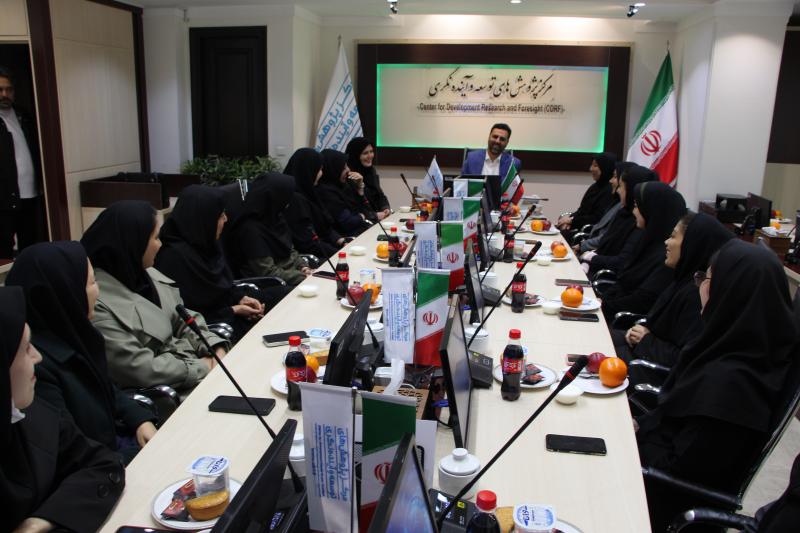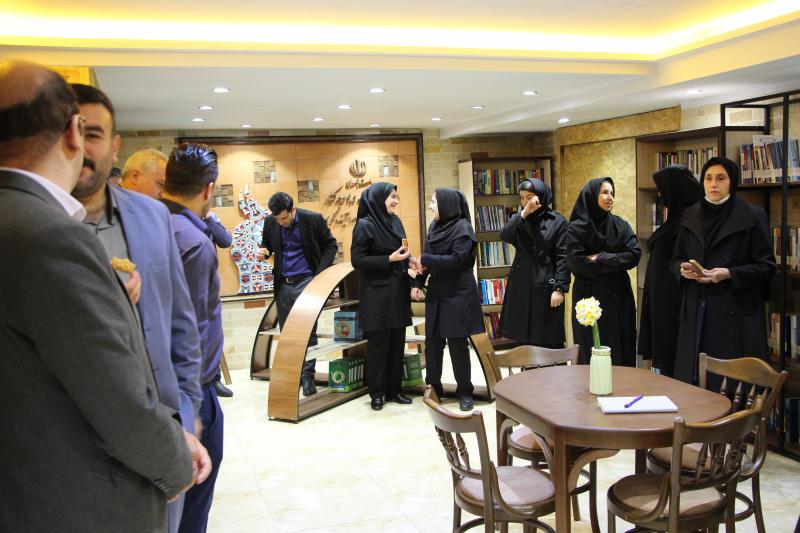
-
بررسی آییننامهها و دستورالعملهای برنامه هفتم پیشرفت
-
بررسی عوامل موثر بر افزایش تصادفات و تلفات جادهای و سوانح رانندگی و دادهکاوی تلفات انسانی
-
سازماندهی و بازآرایی فضایی آموزش عالی کشور
-
به روز رسانی سند ملی آمایش سرزمین
-
انجام مطالعات مناطق آزاد به عنوان نواحی پیشران اقتصادی کشور
-
اصلاح ساختار بودجه و پیاده سازی نظام یکپارچه مدیریت اطلاعات مالی دولت (IFMIS)
کلید واژه : Inflation
تعداد اخبار : 20
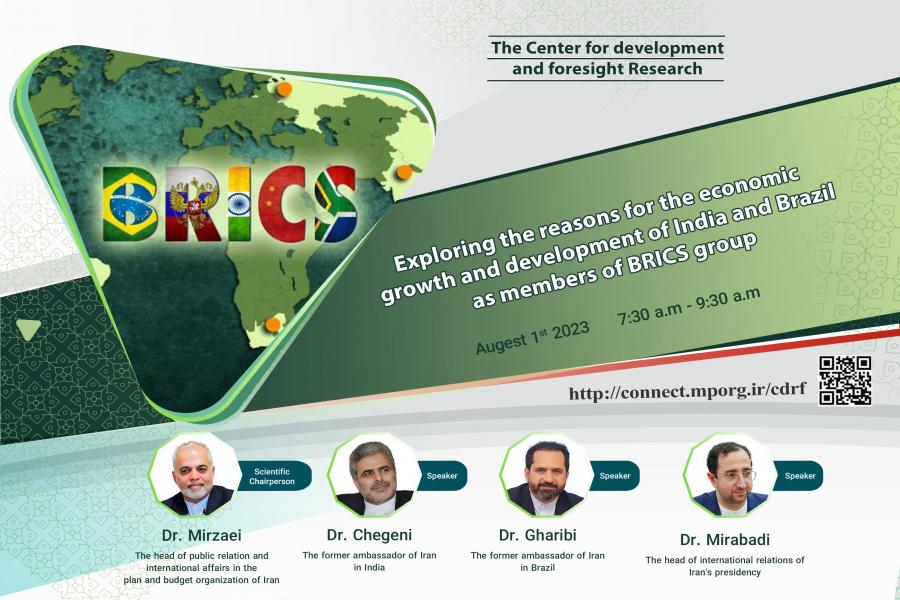
The private sector is the driving force of the BRICS countries’ economic development
The specialized conference of “Exploring the reasons for the success of the development plans of the BRICS countries; with a focus on Brazil and India” was held. It was stated that the private sector is considered as the driving force of economic development in Brazil and India. Also, it was mentioned that utilizing the economic development experience of Brazil and India would be a pivotal factor for the development of Iran’s economy.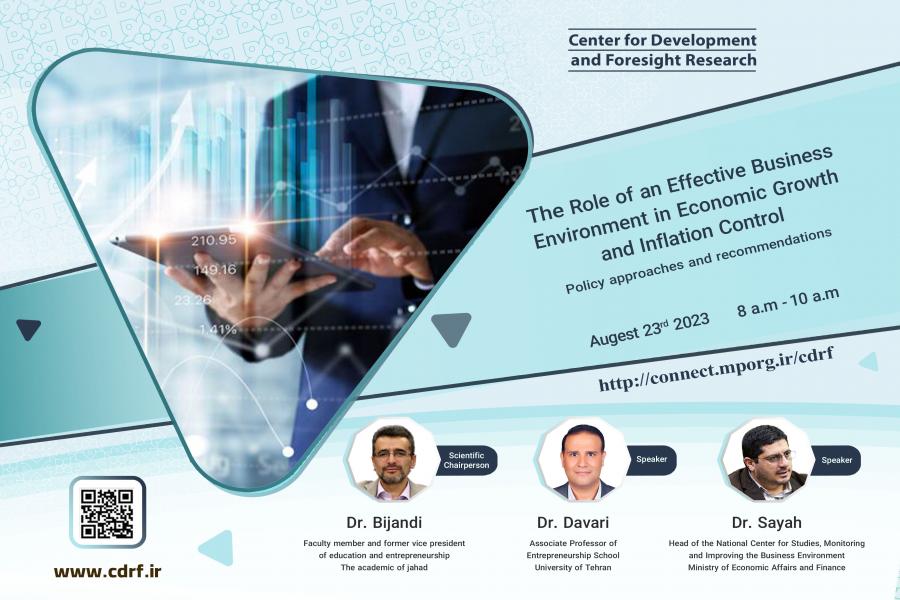
The Role of an Effective Business Environment in Economic Growth and Inflation Control: Approaches and Policy Recommendations
The specialized conference titled “The Role of an Effective Business Environment in Economic Growth and Inflation Control: Approaches and Policy Recommendations” was recently held. The conference was attended by several notable figures, including Dr. Mohammad Sadegh Bijandi, a former member of the academic board and deputy of education and entrepreneurship of the Academic Center for Education, Culture, and Research, who served as the scientific director. Other attendees included Dr. Ali Davari, an associate professor of entrepreneurship at the University of Tehran, and Dr. Amir Sayyah, the head of the National Center for Business Environment Studies, Monitoring, and Improvement of the Ministry of Economic Affairs and Finance, who both served as scientific speakers. The conference aimed to discuss approaches and policy recommendations for creating an effective business environment to promote economic growth and control inflation.
Iran’s Golden Opportunity: Exploring New Commercial Markets in Africa
In the conference of “The Role of International Relations in Controlling Inflation and Production Growth”, it is stated that the main economic goals at the Ministry of Foreign Affairs are fostering currency inflow and boosting employment growth. The embassies have a special mission to support and market the products of 640 domestic knowledge-based companies. Special attention is given to Iran's business opportunities with neighboring countries, Latin America, Southeast Asia, and especially Africa as a priority of the Ministry of Foreign Affairs in the thirteenth government. There is a high demand for Iran's medical and pharmaceutical products in Latin America..jpg)
Agricultural Sector Achieves Significant Growth, but Challenges Remain
The scientific conference titled "The Role of Balancing Production and Consumption of Agricultural Products in Controlling Inflation" underscored the significance of food security and self-sufficiency. It emphasized the urgency to augment investment in the agricultural sector and the imperative to establish a comprehensive production chain for agricultural products.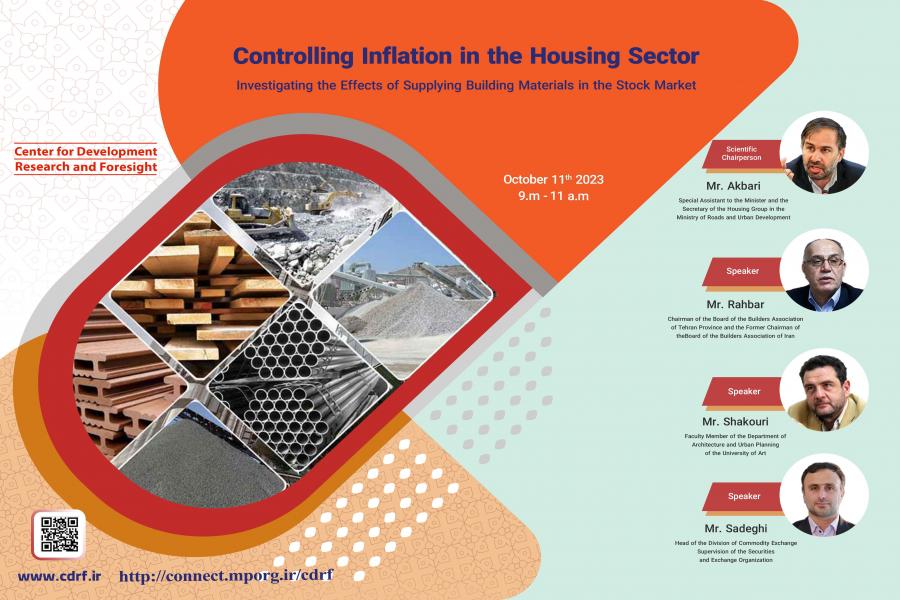
Supplying Building Materials in the Stock Market is a Matter with Controversial Perspectives.
The Center for Development and Foresight Research recently organized a specialized conference focused on addressing inflation in the housing sector, specifically examining the effects of supplying building materials in the stock market. The conference was led by Mr. Rouhollah Akbari, a special assistant to the Minister and the secretary of the housing group in the Ministry of Roads and Urban Development. Various experts from academia and industry presented their perspectives so that a comprehensive outlook can be provided to all interested in this topic.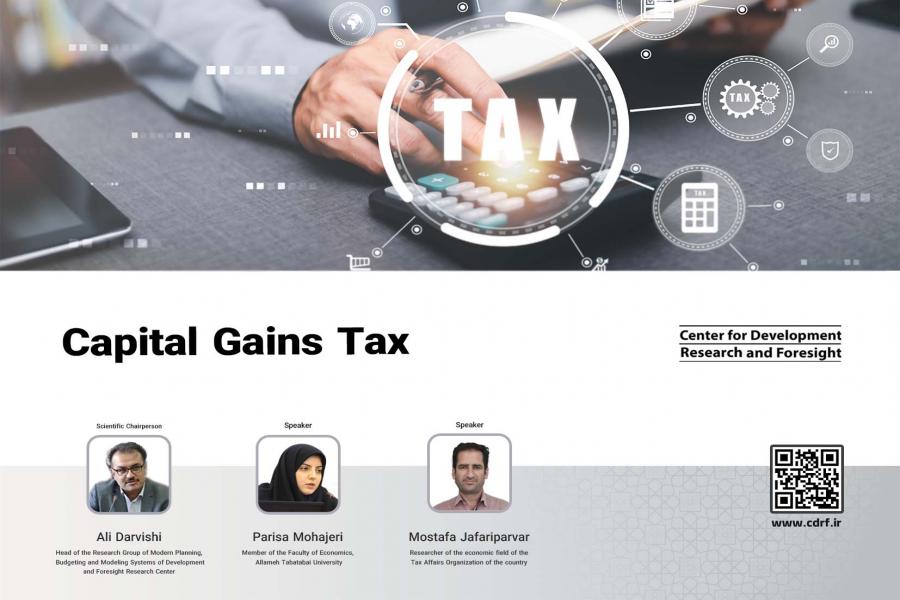
Capital Gains Tax in Iran
Iran’s 2022 budget projects tax collection to make up over 80% of the expected revenues, leading to a negative operational balance due to high government expenses. To address this, the government plans to increase tax revenues by identifying new tax bases and implementing a capital gains tax plan. However, concerns exist about the efficiency of the current tax system and the social impact of the capital gains tax law. 
Evaluating the Taxable Potential of Rental Income from Residential Properties and Vacant Homes in 2022
The imposition of a tax on vacant residential units is believed to influence behavior and align the vacancy rate with its natural level. From this perspective, the total tax capacity of vacant residential units is estimated at 12 thousand billion tomans, with 40% attributed to Tehran province. Given the current state of the housing market, it is deemed necessary for the government to intervene through the implementation of a tax law targeting vacant housing units. This serves as a regulatory mechanism to manage the housing market, control speculation, and reduce the profitability of unproductive activities in the housing sector.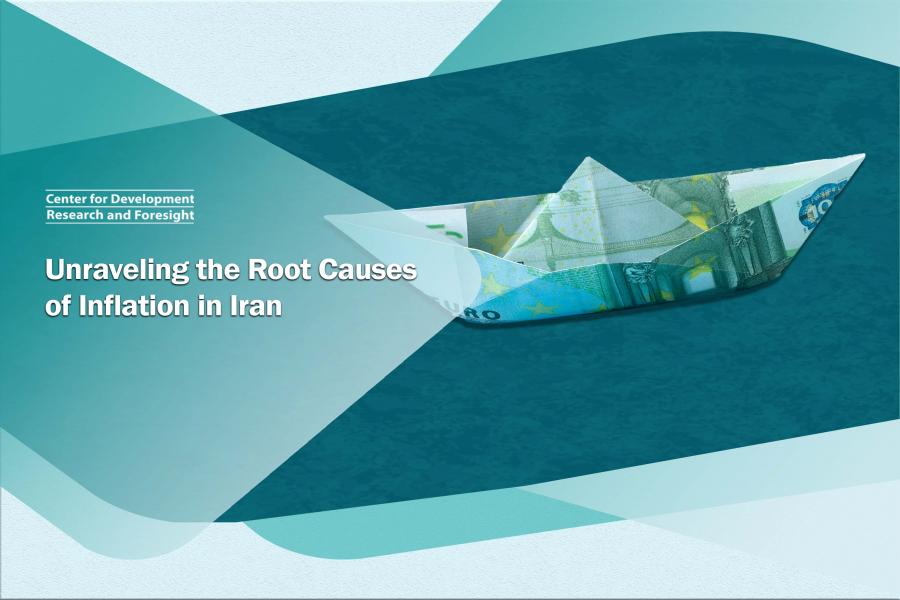
Unraveling the Root Causes of Inflation in Iran
High and persistent inflation poses a significant challenge to Iran's economy, with an annual average inflation rate of 20% impacting the socio-economic well-being of households. While there are diverse viewpoints on the root causes of this enduring inflation, a majority of economists argue that the dynamics of inflation in Iran should be considered since it has effects on the volume of liquidity and its components.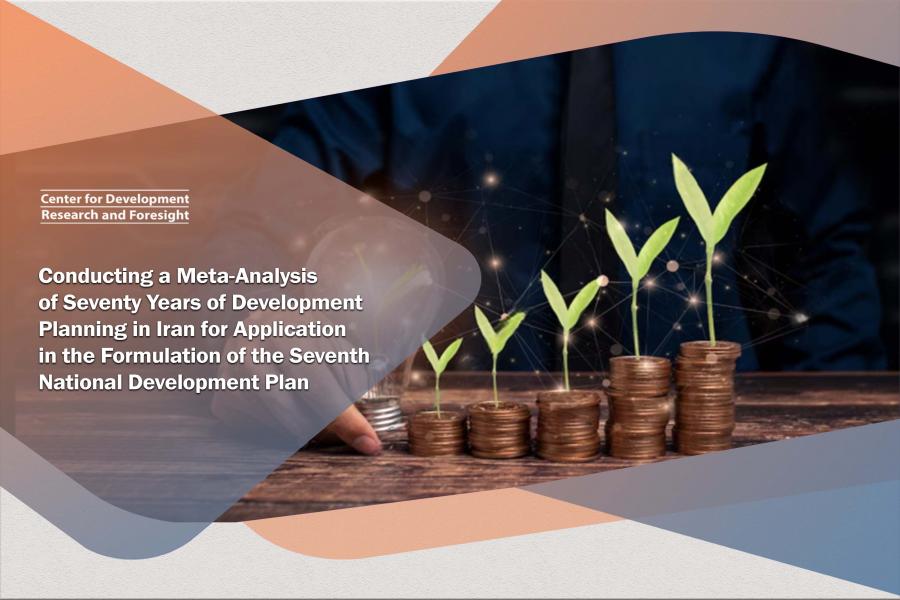
Conducting a Meta-Analysis of Seventy Years of Development Planning in Iran for Application in the Formulation of the Seventh National Development Plan
The development plan in Iran has been shaped by the evolution of the plan itself, following an established planning procedure. A crucial factor for successful planning is the establishment of a shared understanding and consensus on regulations, which serve as a blueprint for the content and structure of the plan among policymakers and planners. Given the importance of this issue, and recognizing that the formulation of regulations will be a pivotal step in advancing the seventh development plan, this study aims to delineate and clarify the regulatory elements of this plan.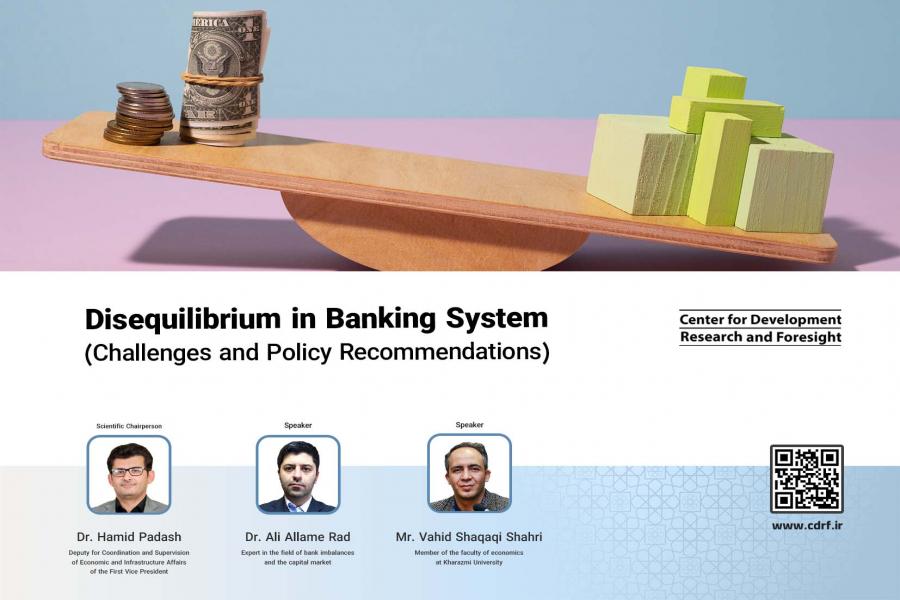
Disequilibrium in Banking System: Challenges and Policy Recommendations
The banking sector's disequilibrium has emerged as a pervasive and enduring challenge within the nation's macroeconomic framework. A series of strategic missteps have plagued the banking sector over the preceding four decades, including: the absence of unified Central Bank oversight from the late 1960s until 1994, despite formal recognition (substantive supervision remained deficient), the premature privatization of the banking industry without adequate national economic preparation, the imposition of government expenditures on private and non-governmental banks, particularly to offset a portion of the budget deficit, the perpetuation of a traditional view of money as a private commodity (a primary factor exacerbating domestic inflation), and vacillation between disparate economic schools, shifting from socialist to capitalist ideologies.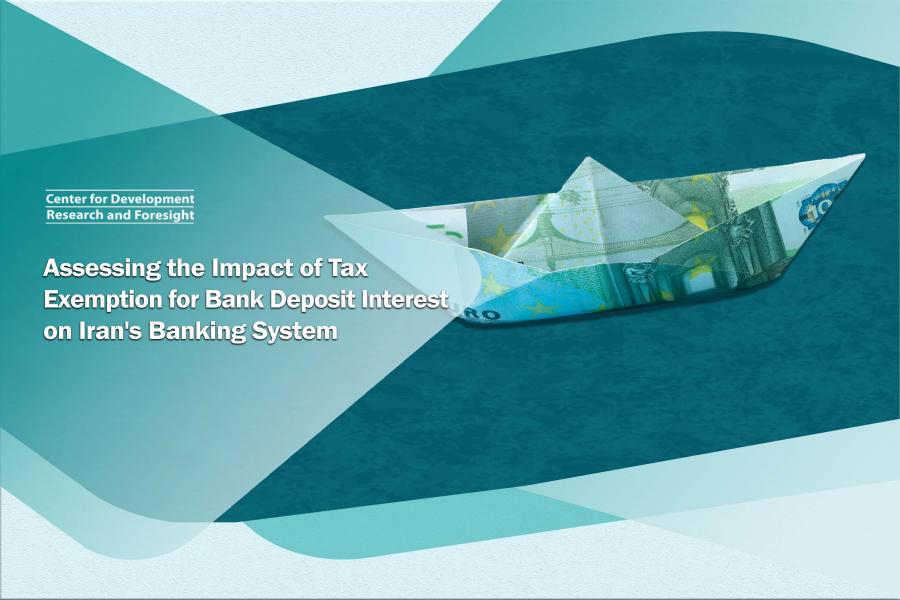
Assessing the Impact of Tax Exemption for Bank Deposit Interest on Iran's Banking System
The exemption of bank deposit interest from taxation within Iran’s financial system is a topic of considerable debate in this field. This research investigates whether the tax on deposit interest should be regarded as an integral component of the tax system or if it should continue to be exempt. Addressing this question, which forms the crux of this study, necessitates a comprehensive review of tax literature, the structure of Iran’s tax system, and its economic, social, and political conditions. This research adopts a three-step approach to address the issue of exempting bank deposit interest from taxation.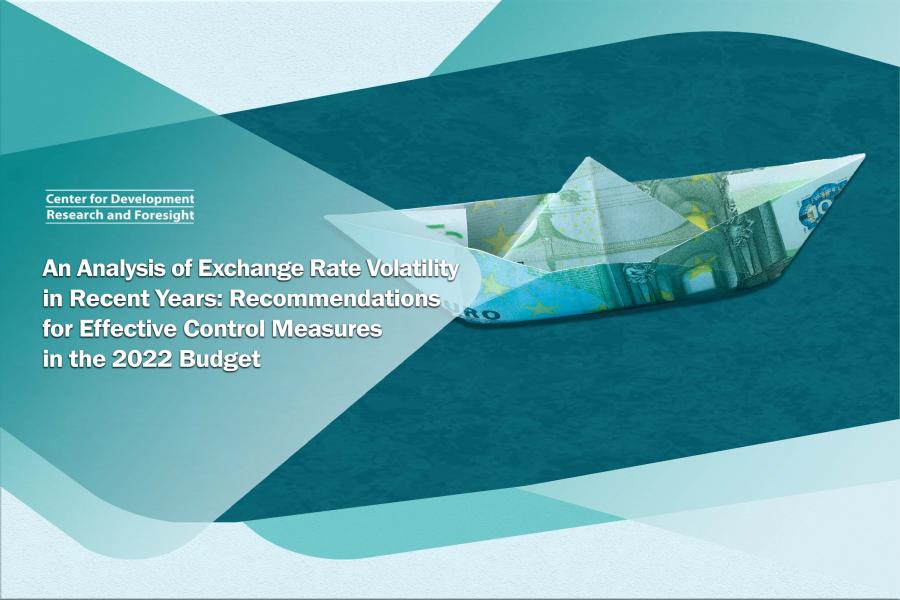
An Analysis of Exchange Rate Volatility in Recent Years: Recommendations for Effective Control Measures in the 2022 Budget
The foreign exchange market, a crucial element of the economy, exerts a profound influence on the regulation of other economic sectors. In recent years, significant exchange rate fluctuations have been observed, predominantly stemming from the direct impact of international sanctions and the improper management of the foreign exchange market. These fluctuations have emerged as a primary catalyst for macroeconomic instability.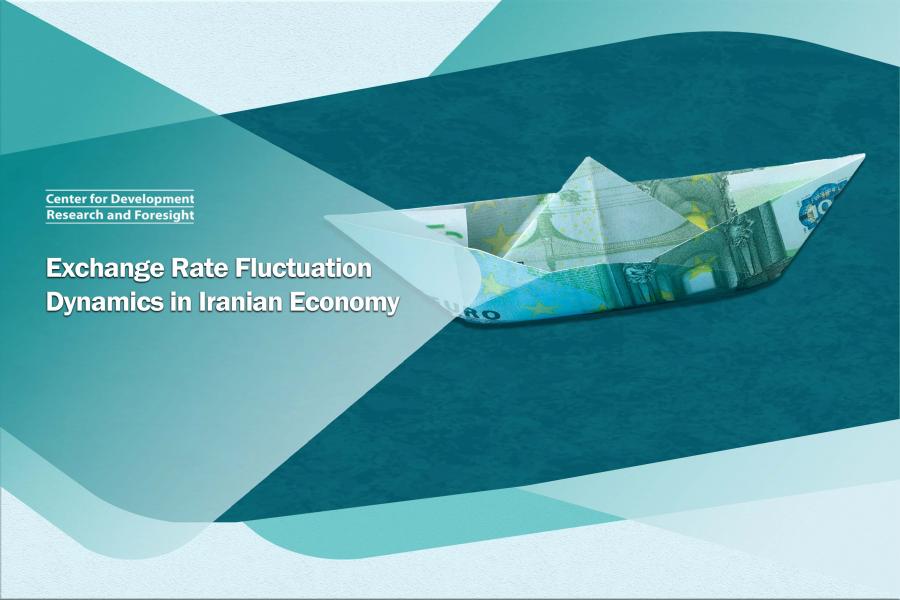
Exchange Rate Fluctuation Dynamics in Iranian Economy
Iran's long-standing exchange rate volatility, marked by a persistent upward trend throughout the past century, has intensified in the latter half of the 20th century. These exchange rate shocks have primarily stemmed from various protectionist and regulatory policies implemented by successive Iranian governments. The prevalence of multiple exchange rates, attempts to suppress exchange rates through administrative measures, and the fixation of exchange rates have all contributed to these fluctuations. A notable turning point occurred in 2018 when the Iranian government introduced a preferential exchange rate of 4200 alongside the prevailing market rate, in response to the United States' withdrawal from the Joint Comprehensive Plan of Action (JCPOA) and the subsequent need to manage the foreign exchange market.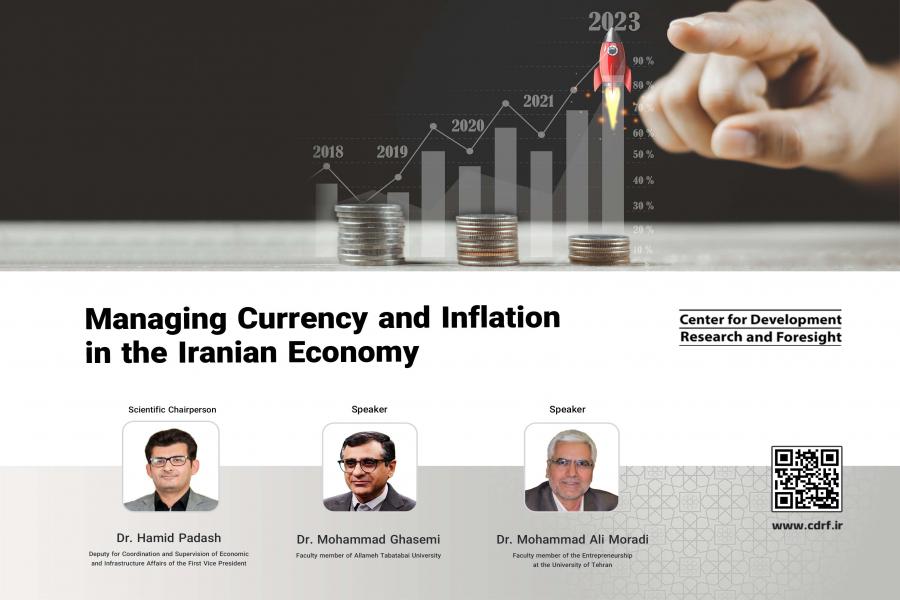
Exchange Rate and Inflation Policies in Iran's Economy
Inflation and exchange rate fluctuations have been persistent challenges in Iran's economy for several decades, leaving policymakers grappling with these issues. Double-digit inflation rates and currency shocks have become almost commonplace, characterizing the country's macro-economy for nearly half a century. However, in the past five years, these two issues have exacerbated Iran's economic situation, leading to unprecedented levels of inflation and exchange rates. Addressing inflation has become a priority in the country's policymaking, as reflected in the current year's slogan.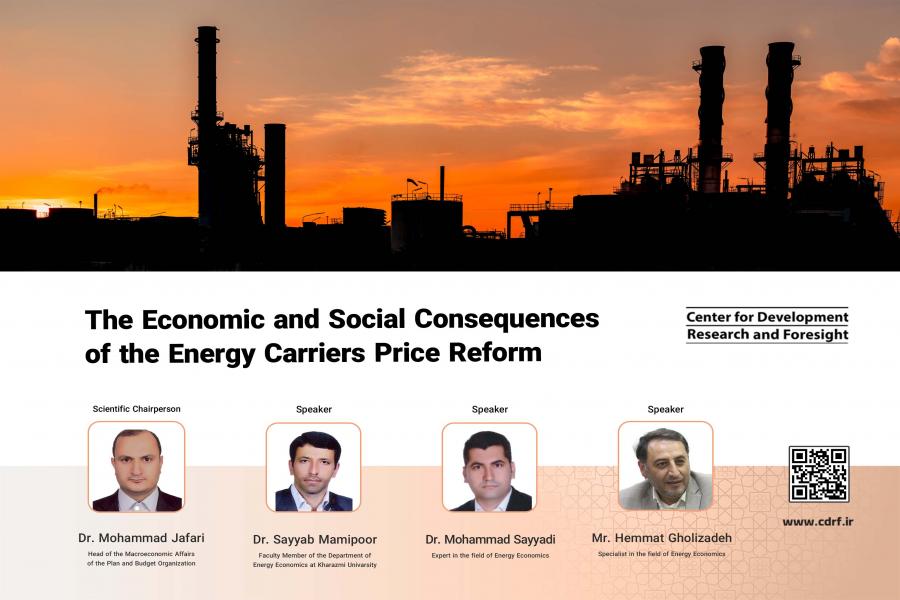
The Economic and Social Consequences of the Energy Carriers Price Reform
Given the significant role of energy in Iran’s economy, the pricing of energy carriers, particularly gasoline, has always been a critical factor in the implementation of government policies and the overall economy of Iran. The Energy Subsidy Reform policy and the appropriate pricing method have consistently posed challenges, with various governments grappling with economic, social, and environmental challenges in gasoline price reforms.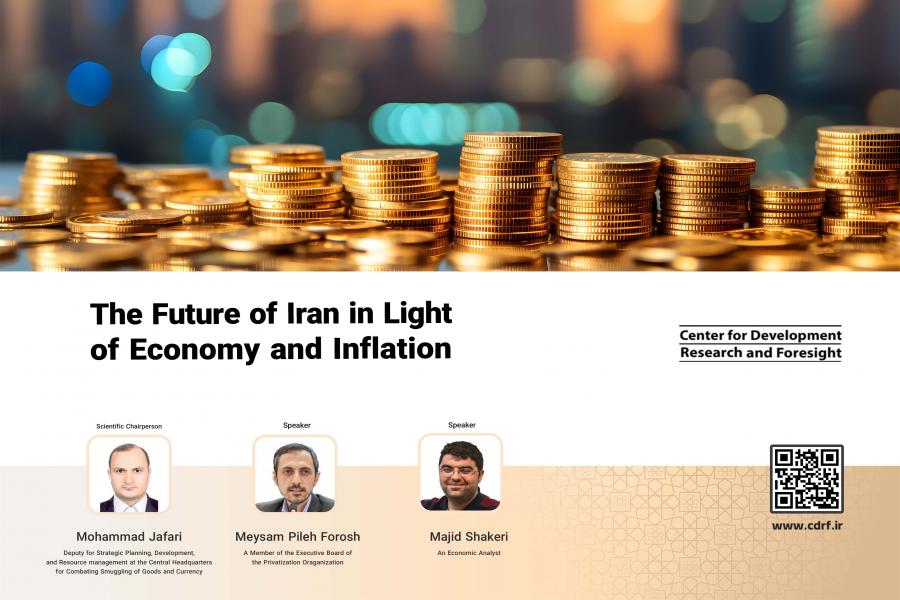
The Future of Iran: From an Economic Perspective
The Center for Development Research and Foresight hosted a pivotal conference titled “The Future of Iran: From an Economic Perspective” with the participation of leading economists and policymakers pointing out the persistent inflation, anemic growth, and deep-seated structural issues.
Shedding light on the Minimum Wage Policy in Iran
The recent conference titled “Shedding light on the Minimum Wage Policy in Iran” at the Center for Development Research and Foresight brought together economists and policymakers to discuss the country's wage policies. Hojjatollah Mirzaei, a faculty member at Allameh Tabataba'i University, criticized the recent wage hikes as inadequate and unevenly implemented. He argued that they failed to keep pace with inflation, leaving workers worse off, and called for the government to be more transparent about the basis for the increases. Mirzaei also expressed concern about the lack of consistency across different sectors, noting that some firms struggle to comply with the mandated increases. He emphasized the need for a more nuanced approach that considers the specific challenges of different industries..jpg)
SMEs and Strategies to Overcome Barriers: The Role of Strategically-Aligned and Geographically-Proximate Countries
An international meeting held on April 24, 2024, at the Center for Development Research and Foresight, brought together experts to discuss the importance of small and medium-sized enterprises (SMEs) for economic growth and job creation, with a particular focus on the role of strategically-aligned and geographically-proximate countries. The meeting, titled "SMEs and Strategies to Overcome Barriers: The Role of Strategically-Aligned and Geographically-Proximate Countries," was led by Aidin Salamzadeh, the vice dean of the faculty of business management at the University of Tehran, who welcomed professor Galina Shirokova, the director of the Center for Strategic Entrepreneurship at HSE University of Saint Petersburg, Morteza Mohammadi Zanjireh, a faculty member at Imam Khomeini International University, and 17 university professors from St Petersburg University, Moscow State University, University of Calgary, and University of Notre Dame. 
The 204th Expert Scientific Meeting of the Center for Development Research and Foresight (CDRF) was held.
According to the Public Relations Office of the CDRF, the 204th Expert Scientific Meeting of the CDRF was held on Tuesday, April 15, 2025, under the title 'The Government's Orientation in Fulfilling the 1404 Slogan (Investment for Production).
The 201st Expert Scientific Meeting of the Center for Development Research and Foresight (CDRF) was held.
According to the Public Relations Office of the CDRF, the eleventh session of the series entitled “The Future Outlook of Iran” and the 201st meeting of the CDRF was held under the title “A Critical Assessment of the Vision of the Islamic Republic of Iran in the Horizon of 1404 AH.”
امروز : سه شنبه، ۲۸ بهمن ۱۴۰۴

